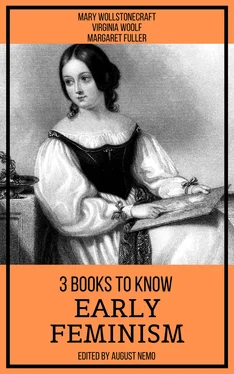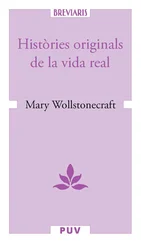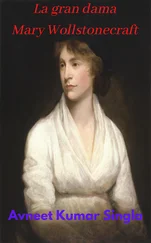There appears to be something analogous in the mind. The senses and the imagination give a form to the character, during childhood and youth; and the understanding, as life advances, gives firmness to the first fair purposes of sensibility — till virtue, arising rather from the clear conviction of reason than the impulse of the heart, morality is made to rest on a rock against which the storms of passion vainly beat.
I hope I shall not be misunderstood when I say, that religion will not have this condensing energy, unless it be founded on reason. If it be merely the refuge of weakness or wild fanaticism, and not a governing principle of conduct, drawn from self-knowledge, and a rational opinion respecting the attributes of God, what can it be expected to produce? The religion which consists in warming the affections, and exalting the imagination, is only the poetical part, and may afford the individual pleasure without rendering it a more moral being. It may be a substitute for worldly pursuits; yet narrow, instead of enlarging the heart: but virtue must be loved as in itself sublime and excellent, and not for the advantages it procures or the evils it averts, if any great degree of excellence be expected. Men will not become moral when they only build airy castles in a future world to compensate for the disappointments which they meet with in this; if they turn their thoughts from relative duties to religious reveries.
Most prospects in life are marred by the shuffling worldly wisdom of men, who, forgetting that they cannot serve God and mammon, endeavour to blend contradictory things. — If you wish to make your son rich, pursue one course — if you are only anxious to make him virtuous, you must take another; but do not imagine that you can bound from one road to the other without losing your way. [47]
THE EFFECT WHICH AN Early Association of Ideas Has upon the Character.
––––––––

EDUCATED IN THE ENERVATING style recommended by the writers on whom I have been animadverting; and not having a chance, from their subordinate state in society, to recover their lost ground, is it surprising that women every where appear a defect in nature? Is it surprising, when we consider what a determinate effect an early association of ideas has on the character, that they neglect their understandings, and turn all their attention to their persons?
The great advantages which naturally result from storing the mind with knowledge, are obvious from the following considerations. The association of our ideas is either habitual or instantaneous; and the latter mode seems rather to depend on the original temperature of the mind than on the will. When the ideas, and matters of fact, are once taken in, they lie by for use, till some fortuitous circumstance makes the information dart into the mind with illustrative force, that has been received at very different periods of our lives. Like the lightning’s flash are many recollections; one idea assimilating and explaining another, with astonishing rapidity. I do not now allude to that quick perception of truth, which is so intuitive that it baffles research, and makes us at a loss to determine whether it is reminiscence or ratiocination, lost sight of in its celerity, that opens the dark cloud. Over those instantaneous associations we have little power; for when the mind is once enlarged by excursive flights, or profound reflection, the raw materials will, in some degree, arrange themselves. The understanding, it is true, may keep us from going out of drawing when we group our thoughts, or transcribe from the imagination the warm sketches of fancy; but the animal spirits, the individual character, give the colouring. Over this subtile electric fluid, [48]how little power do we possess, and over it how little power can reason obtain! These fine intractable spirits appear to be the essence of genius, and beaming in its eagle eye, produce in the most eminent degree the happy energy of associating thoughts that surprise, delight, and instruct. These are the glowing minds that concentrate pictures for their fellow-creatures; forcing them to view with interest the objects reflected from the impassioned imagination, which they passed over in nature.
I must be allowed to explain myself. The generality of people cannot see or feel poetically, they want fancy, and therefore fly from solitude in search of sensible objects; but when an author lends them his eyes they can see as he saw, and be amused by images they could not select, though lying before them.
Education thus only supplies the man of genius with knowledge to give variety and contrast to his associations; but there is an habitual association of ideas, that grows ‘with our growth,’ which has a great effect on the moral character of mankind; and by which a turn is given to the mind that commonly remains throughout life. So ductile is the understanding, and yet so stubborn, that the associations which depend on adventitious circumstances, during the period that the body takes to arrive at maturity, can seldom be disentangled by reason. One idea calls up another, its old associate, and memory, faithful to the first impressions, particularly when the intellectual powers are not employed to cool our sensations, retraces them with mechanical exactness.
This habitual slavery, to first impressions, has a more baneful effect on the female than the male character, because business and other dry employments of the understanding, tend to deaden the feelings and break associations that do violence to reason. But females, who are made women of when they are mere children, and brought back to childhood when they ought to leave the go-cart forever, have not sufficient strength of mind to efface the superinductions of art that have smothered nature.
Every thing that they see or hear serves to fix impressions, call forth emotions, and associate ideas, that give a sexual character to the mind. False notions of beauty and delicacy stop the growth of their limbs and produce a sickly soreness, rather than delicacy of organs; and thus weakened by being employed in unfolding instead of examining the first associations, forced on them by every surrounding object, how can they attain the vigour necessary to enable them to throw off their factitious character? — where find strength to recur to reason and rise superiour to a system of oppression, that blasts the fair promises of spring? This cruel association of ideas, which every thing conspires to twist into all their habits of thinking, or, to speak with more precision, of feeling, receives new force when they begin to act a little for themselves; for they then perceive that it is only through their address to excite emotions in men, that pleasure and power are to be obtained. Besides, the books professedly written for their instruction, which make the first impression on their minds, all inculcate the same opinions. Educated then in worse than Egyptian bondage, it is unreasonable, as well as cruel, to upbraid them with faults that can scarcely be avoided, unless a degree of native vigour be supposed, that falls to the lot of very few amongst mankind.
For instance, the severest sarcasms have been levelled against the sex, and they have been ridiculed for repeating ‘a set of phrases learnt by rote,’ when nothing could be more natural, considering the education they receive, and that their ‘highest praise is to obey, unargued’— the will of man. If they be not allowed to have reason sufficient to govern their own conduct — why, all they learn — must be learned by rote! And when all their ingenuity is called forth to adjust their dress, ‘a passion for a scarlet coat,’ is so natural, that it never surprised me; and, allowing Pope’s summary of their character to be just, ‘that every woman is at heart a rake,’ why should they be bitterly censured for seeking a congenial mind, and preferring a rake to a man of sense?
Читать дальше













